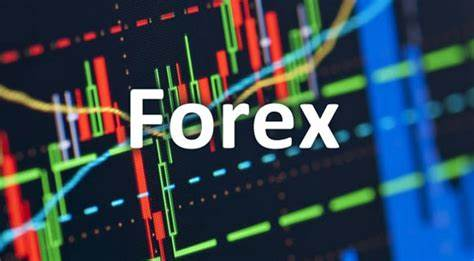- Introduction to Forex Trading
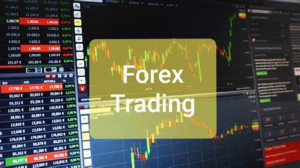
Forex exchange includes trading one piece of money for one more in the worldwide commercial center. It’s one of the most significant and fluid monetary business sectors, with a daily exchange volume surpassing $6 trillion. Unlike other financial markets, forex trading operates 24 hours a day, five days a week, making it accessible to traders worldwide.
- Understanding Currency Exchange Rates
The currency exchange rates determine the value of one currency compared to another. Various factors influence these rates, “Economic indicators, geopolitical events, central bank policies, and market sentiment are some of the factors that can influence the financial markets.” Understanding exchange rates is crucial for assessing currency value and making informed trading decisions.
Factors Influencing Exchange Rates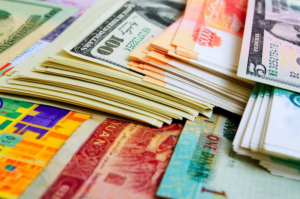
Market interest elements in the forex market impact on trade rates. Factors, for example, loan costs, expansion, exchange adjustments, political steadiness, and monetary execution, influence money valuation. Traders analyze these factors to anticipate future exchange rate movements and identify trading opportunities.
Major Currency Pairs
In forex exchange, monetary standards are exchange matches, with the most generally exchanged matches known as significant cash matches. These matches include economic standards from the world’s biggest economies, like the US dollar (USD), Euro (EUR), Japanese yen (JPY), English pound (GBP), and Swiss franc (CHF). Significant money matches offer high liquidity and tight spreads, making them famous among merchants.
- Essential Components of Forex Trading
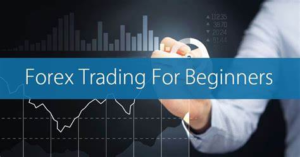
Forex trading involves several essential components, including:
- Trading platforms
- Brokers
- Strategies
Forex Trading Platforms
Forex exchange stages are programming applications that work with money exchange. These stages allow ongoing business sector information, outline devices, request execution capacities, and provide logical highlights. Popular trading platforms include MetaTrader 4 (MT4), MetaTrader 5 (MT5), and cTrader.
Forex Brokers Comparison
Picking the right forex specialist is pivotal for fruitful exchange. Merchants’ ought to consider factors, for example, guidelines, exchanging costs, client service, and exchanging conditions while choosing an intermediary. Directing an intensive forex specialist examination assists merchants with tracking down a dealer that meets their requirements and inclinations.
- Developing Effective Forex Trading Strategies
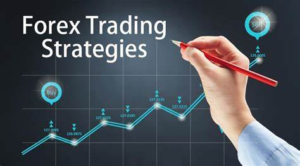
Effective forex trading involves implementing trading strategies based on thorough market analysis:
Technical Analysis
Technical analysis involves analyzing price charts and historical data to identify patterns, trends, and trading opportunities. Technical traders use indicators, such as moving averages, Fibonacci retracements, and stochastic oscillators, to make trading decisions based on price action.
Fundamental Analysis
Fundamental analysis evaluates economic indicators, central bank policies, geopolitical events, and market news to assess currency valuation. Real traders analyze GDP growth, inflation rates, interest rates, and geopolitical tensions to anticipate currency movements.
Sentiment Analysis
Sentiment analysis involves gauging market sentiment and investor psychology to identify market trends and sentiment shifts. Traders monitor sentiment indicators, such as market sentiment indices, news sentiment, and social media sentiment, to assess market sentiment and sentiment extremes.
Forex Market Analysis
Forex market analysis is essential for understanding market dynamics and identifying trading opportunities.
Types of Market Analysis
There are three essential sorts of market examination in forex exchanging:
- specialized examination
- critical investigation
- opinion examination.
Merchants frequently utilize a mix of these examination techniques to acquire a far-reaching comprehension of the market.
Tools and Indicators
Traders utilize various tools and indicators to conduct market analysis, including:
- price charts
- Technical indicators
- Economic calendars
- News feeds.
These tools provide valuable insights into market trends, volatility, and potential trading opportunities.
- Leveraging Forex Signals for Trading Success
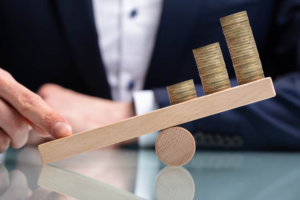
Forex signals are trading recommendations generated by experienced traders or automated trading systems. Traders can use predefined strategies to determine entry and exit points, stop-loss levels, and profit targets. Following forex signals, traders can capitalize on opportunities with minimal effort and expertise.
- Risk Management in Forex Exchanging
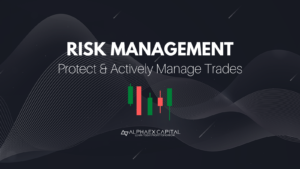
Risk management in forex exchange is crucial to preserve capital and minimize losses.
Position Sizing
Position sizing involves determining the appropriate trade size based on risk tolerance, account size, and trading strategy. It is recommended that traders limit the amount of their trading capital they risk on any single trade to reduce the impact of losses.
Stop Loss Orders
Stop loss orders are orders to close a trade at a predefined price level to limit losses. By setting stop misfortune orders, merchants can shield their capital from extreme misfortunes and oversee risk successfully during unstable economic situations.
- Choosing the Right Forex Broker
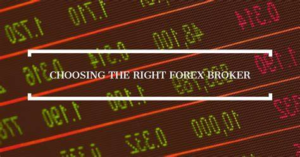
Choosing a trustworthy and dependable forex broker is crucial to successful trading.
Regulation and Security
Regulated brokers adhere to strict regulatory standards imposed by financial authorities to ensure transparency, fairness, and client protection. Dealers should pick specialists controlled by trustworthy administrative bodies, like the UK Monetary Lead Authority (FCA) or the Australian Protections and Speculations Commission (ASIC).
Trading Costs and Spreads
Trading costs, including spreads, commissions, and overnight financing fees, can significantly impact trading profitability. Traders should compare trading costs among different brokers and choose brokers offering competitive spreads and low trading fees.
- Conclusion
Forex exchanging offers rewarding open doors for dealers to benefit from money vacillations worldwide. By understanding currency exchange rates, utilizing effective trading strategies, conducting comprehensive market analysis, and managing risk prudently, traders can increase their chances of success in the forex market.
- FAQs
- What is the best chance to exchange forex?
The best chance to exchange forex relies upon market unpredictability and liquidity, which fluctuates across various exchanging meetings. The most dynamic exchanging meetings happen during the cross-over of primary monetary focuses, for example, the London-New York cross-over.
- Are forex signals reliable for trading?
While forex signals can provide valuable trading ideas, their reliability depends on the signal provider’s or trading system’s accuracy. Traders should thoroughly evaluate signal providers’ track records, performance metrics, and risk management practices before following their signals.
- What minimum capital is required to start trading in the forex market?
The amount of capital needed to begin trading forex varies based on an individual’s trading style, risk tolerance, and strategy. While some brokers offer low minimum deposit requirements, traders should aim to start with sufficient capital to withstand potential losses and meet margin requirements.
- What are the risks associated with forex trading?
Forex trading carries inherent risks, including market volatility, leverage, liquidity, and geopolitical risks. Dealers should know about these dangers and carry out risk-the-board methodologies to safeguard their capital and limit misfortunes.
- Can I trade forex without a forex broker?
No, forex exchanging requires the administration of a forex specialist to get to the interbank forex market. Forex intermediaries give trading stages, market access, and other fundamental administrations to work with cash exchange for retail dealers.
